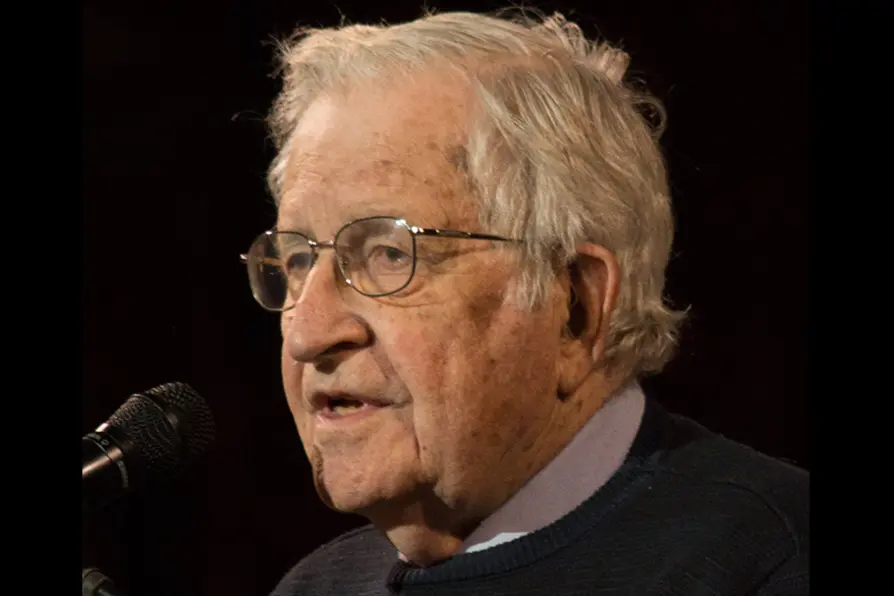RON JACOBS welcomes a timely history of the Anti Imperialist league of America, and the role that culture played in their politics
The Responsibility of Intellectuals
Essays on the role of intellectuals in a conflicted contemporary world

 Noam Chomsky
Noam Chomsky
WHAT or who is an intellectual? If you were to go by a Guardian listing of the top 300 British intellectuals, which includes the likes of Michael Gove, then the term might appear meaningless.
In this short book of essays, marking the half century since Noam Chomsky’s powerful anti-Vietnam war article with the same title in the New York Review of Books, Nicholas Allot defines the intellectual as applying to those privileged to have the “training in reading texts critically, looking up sources … and the time and job security to be able to do so in the sustained way that it takes to expose the lies of the state and other powerful agents.”
Similar stories

Ben Cowles speaks with IAN ‘TREE’ ROBINSON and ANDY DAVIES, two of the string pullers behind the Manchester Punk Festival, ahead of its 10th year show later this month

RON JACOBS welcomes the long overdue translation of an epic work that chronicles resistance to fascism during WWII

NICK WRIGHT delicately unpicks the eloquent writings on art of an intellectual pessimist who wears his Marxism lightly

CAROLINE FOWLER explains how the slave trade helped establish the ‘golden age’ of Dutch painting and where to find its hidden traces










